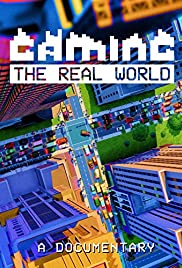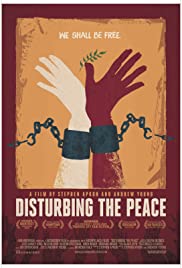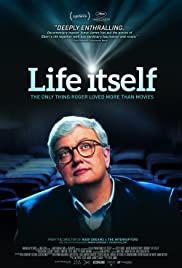
Can games change the world? With cities everywhere struggling to cope with the population growth that increased urbanisation brings, can video games be harnessed to help the residents, especially young people, take part in planning, and fixing their own cities? Today public spaces and entire cities are being designed, planned and played through the medium of games. The result of this ‘civic gamification’ is that city architecture and urban planning is being democratized. Cities have become the ground zero for digital innovation and the debate about how our cities evolve has suddenly gone viral. We follow three game companies navigating the space where urban planning and gaming meet. Lydia Winters at the game developer Mojang, the creators of Minecraft, Paradox Interactive and the game Cities: Skylines and José Sanches and his indie game Block’hood. How will our cities look in 20 – 100 years time?
You May Also Like

When the immigrants came to America, their cultures entered the “great melting pot.” In Michigan’s Upper Peninsula Finnish immigrants mixed their musical traditions with many other cultures, creating a sound that was unique to the “Copper Country.”

In intimate close-ups the camera captures an idyllic scene that seems to belong to a different era.

“Rigged” shows viewers just what Republicans did – and continue to do – from creating new barriers to voter registration, to purging American citizens from the voting rolls without notice, to new and deliberate impediments to casting a vote. In addition, the film shows how GOP activists developed an elaborate but false narrative of widespread voter fraud in order to justify the necessity for new and draconian voting restrictions.

An intimate portrait detailing The Matches’ promising career, defeating break up, and inspiring reunion as they reflect on what success truly means for musicians in today’s digital industry. The Matches’ story overlaps with the drastic changes the music industry has undergone in the past several years. From declining record sales, to excessive touring, to illegal downloading and streaming.

On November 17, 2003, Maja Bradaric was strangled by three of her friends. She was just 16. Maja’s intimates ask themselves why none of them saw it coming.

Four young women who survived the atrocious right-wing terror attack at Utøya Island have chosen to continue their political engagement. They were all severely wounded, but had to deal with losing so many of their friends.

100UP is a film which investigates the will to live. It portrays a colourful selection of 100+ year old people from all over the world. They have lived for over a century and witnessed great historical events, but instead of dwelling on the past, they look ahead. With the clock inevitably ticking, these centenarians cling to life, set new goals with a joie de vivre, refusing to admit the betrayal of their deteriorating bodies. Time is both their enemy and their friend. They have overcome diseases, lost partners and some of them survived their own children. Nevertheless, these active, curious and creative 100+ year olds are amazingly good at restarting every new day.

On a fateful San Francisco night in the early 60s, Condor nightclub performer Carol Doda was lowered to the stage on a floating piano, topless. Word spread quickly, setting off a wave of controversy and delight, with raids soon to follow. There was even a trial for the new celebrity. Doda’s dry wit and charisma made her an instant sensation of the night club scene: an empowered woman in full control. Or so it seemed.

Through the relationships he cultivated with The White House and US Congress, John Hume created the framework for peace in Northern Ireland.

Disturbing the Peace follows a group of former enemy combatants – Israeli soldiers from the most elite units, and Palestinian fighters, many of whom served years in prison – who have come together to challenge the status quo and and say “enough”. The film traces their transformational journeys from soldiers committed to armed battle to non-violent peace activists. It is a story of the human potential unleashed when we stop participating in a story that no longer serves us, and with the power of our convictions take action to create a new possibility.

Jean-François Davy is a legendary French director of erotic cinema, whose work was among the most notable European adult film productions of the 1970s and 80s, particularly his documentaries on Parisian sexuality including Prostitution (1975), Les Pornocrates (1976), and the trilogy of Exhibition (1975), Exhibition 2 (1978), and Exhibition 79 (1979). After an absence of several years, Davy now returns to the erotic documentary genre that made him famous, only now he turns his probing camera on himself as well. Davy and his cameraman travel to the major cities of Eastern Europe – from Prague to Budapest, with stops in between – as the filmmaker searches for a beautiful muse to serve as the leading lady of his next carnal opus. As countless gorgeous young women undress to audition for the camera, Davy keeps looking for a girl with a special quality, and when he finds her, he also finds himself falling head over heels for her charms.

Life Itself recounts the surprising and entertaining life of renowned film critic and social commentator Roger Ebert. The film details his early days as a freewheeling bachelor and Pulitzer Prize winner, his famously contentious partnership with Gene Siskel, his life-altering marriage, and his brave and transcendent battle with cancer.